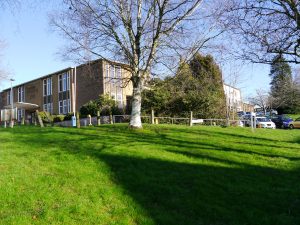
Once a client has determined to fight their case at trial, we will identify the issue, the law to apply, decide what disclosure and questions to ask of the Prosecution and their witnesses, discuss what work to do to test the Prosecution case and to establish our client’s defence. That might include obtaining witness statements or arranging our own expert assessments or testing. It will mean spending time with the client to be clear about the detail of their defence . . . . .
At a trial the Prosecution has to prove the case against the Defendant so that the tribunal is sure of guilt. So the first approach of the Defence is to show that the Prosecution evidence is not wholly reliable. People don’t realise that because our criminal justice system is adversarial, if there is work to be done that might undermine the Police case or might support the Defendant’s, then it is legal aid that has to cover the cost of that. It does not just pay the lawyer’s costs. Examples of the sort of work that the Courts rely on the Defence to conduct includes obtaining psychiatric or medical records and reports that establish if the defendant is fit to participate in the court process or to identify health issues relevant to the case. Legal aid has to pay for locating alibi witnesses or character witnesses or witnesses that the police have not spoken to who could give relevant evidence. The Court relies on the Defence to obtain telephone, social media or any other records that the Defendant might want to refer to at trial. Only the Defence are going to secure second opinions on any expert evidence relied on by the Prosecution. The Defence are going to have to identify areas of expertise that might exonerate their client and has not been obtained by the Police.
Trinity Advocates has many contacts amongst the expert community in the area and nationally that we can call upon to help our clients.
We assess with our clients if they are best represented by one of our in-house advocates or if a particular barrister would be preferred. In almost all our Crown Court trials we make sure that the client has access to a case progression officer who will be a lawyer and will be separate from the advocate. So that client has two lawyers working together on their case.
The client will be helped to prepare their defence statement which is a document always required in Crown court trials and is an option in Magistrates trials. This document is key because it’s content can be used against the Defendant if their account at trial is not consistent with it. That document also can be used as a tool to secure material the police and prosecution have exclusive access to and might be helpful to the Defence. In addition to the defence statement we will help prepare a “proof”, which is our client’s statement kept for only theirs and their lawyers’ use, but important to being consistent in the presentation of the defence case at trial.
There are various applications the Defence can make that might assist the defence case and it is all part of our skill and expertise to prepare and manage any such applications. This might include applying to have the bad character of a witness or co-defendant to be considered by the jury or it might include resisting a Prosecution application to refer to any bad character of the client at trial. In sex cases, the Defence have to have very specific, legal grounds for justifying any reference to a complainant or anyone having a particular sexual history and any such application has to be carefully prepared in good time before the trial.
The above are just examples of defence trial preparation, which is something we consider an important part of our expertise and experience. Good, rigorous preparation improves the chances of Defence success.
